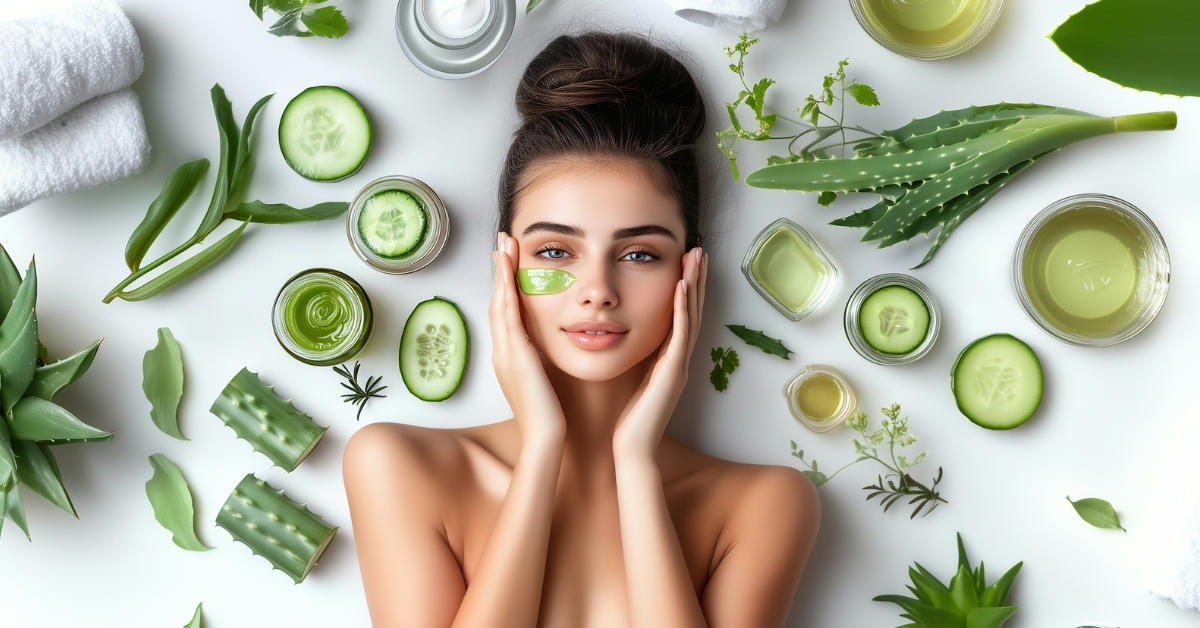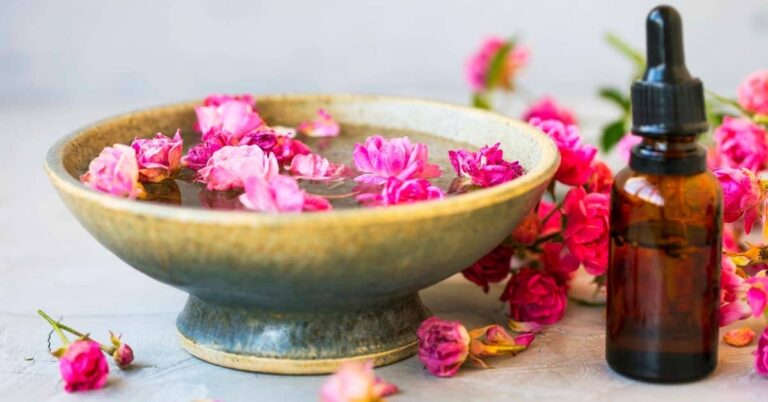Healthy Habits for Glowing Skin (Diet, Hydration)
Everyone desires a radiant glow and an even skin tone. The secret to achieving this isn’t just in bottles and jars of skin care products, but also in nurturing your skin from the inside out. Diet and hydration play pivotal roles in how your skin looks and feels. Engaging in a lifestyle that prioritizes these elements can lead to noticeable improvements in your skin’s health and appearance.
What you eat significantly impacts your skin. A balanced diet rich in fruits, vegetables, and lean proteins can provide the essential nutrients your skin craves for that natural glow. Similarly, hydration isn’t just about drinking water; it’s also about consuming foods high in water content to help maintain the skin’s moisture balance. Together, diet and hydration form the cornerstone of a healthy skin care regimen.
Adopting habits that incorporate nutritious foods and ample hydration into your daily routine doesn’t have to be a daunting task. Simple changes, like choosing water over sugary drinks or including a variety of colorful vegetables in your meals, can make a big difference in your skin’s health. Let’s dive deeper into how a balanced diet and proper hydration can unlock the door to glowing skin.
The Role of a Balanced Diet in Skin Health
A balanced diet is like a building block for healthy skin. It supplies your body with a mix of vitamins, minerals, and antioxidants that are crucial for repairing skin, maintaining elasticity, and preventing damage. These nutrients work together to support the skin’s natural barrier, helping to protect against environmental stressors that can lead to premature aging.
Vitamins such as A, C, and E play a direct role in skin care. Vitamin A helps in the repair of skin cells, promoting a smooth, even skin tone. Vitamin C is a powerhouse in collagen production, vital for skin strength and elasticity, while Vitamin E provides protection against UV rays and helps in skin moisturization. Antioxidants, found in berries, green tea, and dark chocolate, defend the skin from free radicals, reducing the risk of wrinkles and skin cancer.
Minerals like zinc and selenium further bolster skin health by supporting the immune system and protecting the skin from UV damage, respectively. These elements, when consumed through a balanced diet, ensure your skin gets the necessary support to remain vibrant and healthy.
Therefore, integrating a variety of nutrient-rich foods into your meals can be transformative for your skin. It’s not only about eliminating unhealthy foods but also about embracing a diet that is diverse and full of life-supporting nutrients. This approach ensures your skin care routine is holistic, covering aspects beyond topical treatments.
Key Nutrients for Radiant Skin
For skin that truly glows, focusing on specific nutrients can make all the difference. Vitamin C, Omega-3 fatty acids, and antioxidants are foundational for radiant skin. Vitamin C, found in citrus fruits and leafy greens, not only boosts collagen production but also brightens the skin, giving it a luminous quality. Omega-3 fatty acids, present in fish, chia seeds, and walnuts, help in reducing inflammation, which can lead to a clearer, smoother complexion.
Antioxidants play a critical role in fighting off free radical damage, which can accelerate skin aging. Foods rich in antioxidants, like berries, dark chocolate, and green tea, provide a shield for your skin against environmental pollutants and stress. Incorporating these nutrients into your diet supports skin regeneration and helps maintain its natural barrier.
By consciously including these key nutrients in your meals, you’re setting the stage for skin that doesn’t just look good on the outside but is also healthy from within. It’s about nourishing your skin at the cellular level with the right building blocks it needs to repair, rejuvenate, and retain its glow.
Importance of Hydration for Skin Glow
Hydration is the essence of vibrant, supple skin. Drinking enough water each day is crucial for maintaining skin elasticity and preventing dryness. Water supports the skin’s ability to retain moisture, which is vital for a smooth, luminous appearance. Moreover, proper hydration helps in flushing out toxins, reducing the likelihood of breakouts and blemishes.
It’s not just about the quantity of water but also about consistency. Regular intake throughout the day ensures your skin remains hydrated, and its texture improved. Additionally, incorporating foods with high water content, such as cucumbers, tomatoes, and watermelon, can further enhance hydration levels, contributing to skin glow.
Hydration also plays a role in sun protection. Well-hydrated skin can better withstand exposure to UV rays and repair itself more efficiently. This doesn’t replace sunscreens but complements sun protection measures, providing an additional layer of defense for your skin.
Thus, making hydration a priority not only benefits your skin’s appearance but its overall health. By ensuring you’re adequately hydrated, you’re taking a significant step towards achieving that coveted glow and keeping your skin resilient against external and internal stressors.
The Role of a Balanced Diet in Skin Health
A balanced diet stands at the core of skin vitality, offering a sustainable approach to skin care. It’s the synergy of various nutrients that supports skin integrity, elasticity, and radiance. By consuming a diet rich in fruits, vegetables, lean proteins, and whole grains, you’re providing your skin with the essential building blocks for repair and regeneration.
Vitamins, minerals, and antioxidants obtained from a balanced diet protect the skin from oxidative stress and environmental pollutants. This nutritional support is crucial for maintaining the skin’s natural barrier, which is the first line of defense against harmful UV rays and other damaging factors.
Embracing a balanced diet is not just about skin aesthetics but also skin health. It’s an investment in your skin’s future, ensuring it remains vibrant, strong, and youthful. By prioritizing nutrition, you’re taking a holistic approach to skin care, which yields benefits far beyond the surface.
Combining Diet and Hydration for Optimal Skin Health
For the ultimate skin care strategy, combining a balanced diet with adequate hydration is key. This powerful duo works synergistically, enhancing each other’s effects on the skin. While a balanced diet provides the necessary nutrients for skin repair and growth, hydration ensures these nutrients are effectively delivered to the skin cells, keeping the skin plump and resilient.
Implementing a routine that marries these two elements can lead to significant improvements in skin texture, elasticity, and overall health. It helps in the removal of dead skin cells, promoting new cell growth and reducing the appearance of fine lines and wrinkles. Moreover, this combination supports the body’s natural detox processes, contributing to clearer, more radiant skin.
Protection against UV rays is another benefit of this holistic approach. Nutrients like Vitamin E and Omega-3 fatty acids, combined with adequate hydration, enhance the skin’s resilience to sun damage. This not only helps in maintaining an even skin tone but also prevents long-term damage to the skin.
By incorporating both a nutrient-rich diet and sufficient hydration into your daily routine, you’re taking proactive steps towards maintaining healthy, glowing skin. It’s a holistic approach that not only improves your skin but also benefits your overall well-being, reflecting the deep connection between how we nourish our body and the health of our skin.
Sample Meal Plan for Glowing Skin
Begin your day with a breakfast rich in Vitamin C; a smoothie made with oranges, kiwi, and strawberries is perfect. Vitamin C not only boosts your immune system but also enhances collagen production, essential for firm and youthful skin. Accompany this with a slice of whole-grain toast topped with avocado, a great source of healthy fats and hydration for your skin.
For lunch, opt for a salad loaded with leafy greens, nuts, and seeds. These ingredients are not only hydrating but are also packed with antioxidants that fight off skin damage. Add a portion of grilled salmon for a healthy dose of omega-3 fatty acids, which support skin oil control and prevent dryness.
Your dinner could be a stir-fry with a variety of colorful vegetables and tofu or chicken. The vegetables provide essential vitamins and minerals, while the protein helps in the maintenance and repair of skin cells. Include a side of quinoa or brown rice for a wholesome meal.
Throughout the day, remember to drink at least 100ml of water every hour. Hydration is key for a radiant skin complexion. For snacks, choose hydrating fruits like watermelon or cucumber slices, and for an extra boost, incorporate a vitamin C serum into your skincare routine to deeply nourish your skin.
Common Mistakes to Avoid in Skincare Diet and Hydration
One of the most common mistakes is consuming too much sugar. Excessive sugar in your diet can lead to breakouts and accelerate skin aging by damaging collagen and elastin. Instead, focus on natural sugars from fruits and limit processed sugars.
Not drinking enough water is another pitfall. Staying well-hydrated is crucial for maintaining skin moisture and elasticity. Aim to drink at least 2 liters of water daily, and remember that caffeinated drinks can dehydrate you, so balance them with additional water intake.
Skipping meals or relying on fast food can deprive your skin of the nutrients it needs to glow. Ensure your meals are balanced with a good mix of proteins, healthy fats, and carbohydrates. Nutrient-rich foods support skin health and help in repairing and rejuvenating your skin cells.
Avoiding healthy fats is also a mistake. Healthy fats, like those found in avocados, nuts, and fish, are essential for maintaining healthy skin. They support moisture retention and help keep your skin supple and glowing. Ensure you include sources of healthy fats in your daily diet.
Setting Realistic Goals for Skin Improvement
Improving your skin’s health doesn’t happen overnight. It’s vital to set achievable goals and be patient. Start with small changes, such as increasing your water intake or incorporating more fruits and vegetables into your diet. These small steps can lead to significant improvements over time.
Consistency is key. Making a lasting change in your diet and hydration habits requires a daily commitment. Keep track of your progress and celebrate small victories, like noticing your skin becoming more hydrated or your complexion clearer.
Remember that everyone’s skin is different, and what works for one person may not work for another. It might take time to find the perfect balance for your skin type. Be patient and willing to adjust your goals as you learn more about what makes your skin thrive.
Adapting Diet and Hydration Habits for Different Skin Types
If you have oily skin, focus on foods that promote oil control and avoid greasy, processed foods. Hydration is still crucial, so aim for foods high in water content and consider adding a toner to your skincare routine to help manage excess oil.
For those with dry skin, increase your intake of healthy fats from sources like avocados and nuts. These fats are vital for maintaining moisture. Also, hydrating at a deeper level with rich moisturizers and drinking plenty of water will help combat dryness.
Combination skin benefits from a balanced approach, including a mix of hydrating and oil-controlling foods. Tailor your skincare products, such as choosing a non-greasy moisturizer, to address both dry and oily areas effectively.
Individuals with sensitive skin should focus on anti-inflammatory foods to help reduce redness and irritation. Incorporating gentle skincare products, like a hydrating gel or cream specifically designed for sensitive skin, can also provide relief and support skin health.
Personalized Nutrition Tips for Your Skin Type
For oily skin, zinc-rich foods like pumpkin seeds and lentils can help regulate oil production. Drinking green tea also offers antioxidant benefits and helps in reducing inflammation.
Dry skin types should prioritize omega-3 fatty acids found in fish and flaxseeds to nourish and maintain skin hydration. Hyaluronic acid in skincare products can also help to attract moisture to the skin, keeping it hydrated.
If you have combination skin, balance is key. Include a variety of fruits and vegetables in your diet to ensure you’re getting a wide range of nutrients. Using a lightweight, hydrating moisturizer can help to address dry patches without exacerbating oily areas.
Parting Thoughts and Next Steps
We’ve covered a lot in our journey towards achieving glowing skin, highlighting the powerful combo of a balanced diet and adequate hydration. Remember, incorporating key nutrients into your meals can do wonders, not just in repairing dull skin but also in reducing dark spots. Hydration, contributing to 80% of our daily needs, plays a crucial role in maintaining that radiant look. It’s essential to personalize these habits to cater to your individual skin needs for more intense results.
Now’s the time to put this knowledge into action. Start by setting realistic goals for your skin improvement journey. Consider experimenting with different foods and hydration levels to see what works best for your skin. And why not treat yourself to a gift set of face creams designed for your skin type? Add such products to your cart as a step towards enhancing your skin care routine. Let’s embark on this path together, turning every meal and every sip into a building block for glowing skin.







